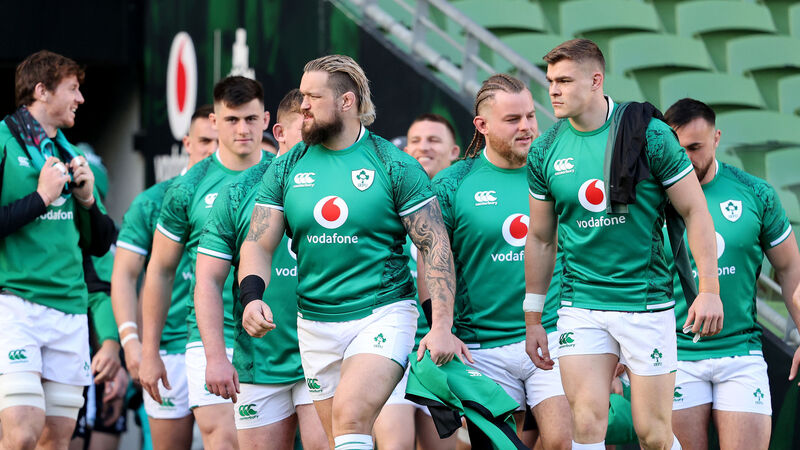Donal Lenihan: Anything other than a win will be a major setback for Ireland and Andy Farrell

Andrew Porter and Garry Ringrose walk out for the Ireland team photo ahead of the start of the 2022 Six Nations. Picture: INPHO/Dan Sheridan
Try from €1.50 / week
SUBSCRIBE
Andrew Porter and Garry Ringrose walk out for the Ireland team photo ahead of the start of the 2022 Six Nations. Picture: INPHO/Dan Sheridan
The key questions
1. Can Ireland replicate what they produced against New Zealand?
Already a subscriber? Sign in
You have reached your article limit.
Annual €130 €80
Best value
Monthly €12€6 / month
Introductory offers for new customers. Annual billed once for first year. Renews at €130. Monthly initial discount (first 3 months) billed monthly, then €12 a month. Ts&Cs apply.
Newsletter
Latest news from the world of sport, along with the best in opinion from our outstanding team of sports writers. and reporters
Sunday, February 8, 2026 - 7:00 PM
Sunday, February 8, 2026 - 6:00 PM
Sunday, February 8, 2026 - 1:00 PM

Select your favourite newsletters and get the best of Irish Examiner delivered to your inbox
© Examiner Echo Group Limited